Finding the Right Balance Between Guinea Pig Hay and Other Foods in a Piggies' Diet
While hay should make up the bulk of your guinea pig's diet, other fresh fruits and vegetables are essential. Discover what else to provide to your guinea pig to keep it happy and healthy!

Key Takeaways:
- Understanding the importance of hay in a guinea pig's diet is crucial for their health and well-being.
- Knowing the types of hay and other foods suitable for guinea pigs can help in creating a balanced diet.
- Recognizing the signs of nutritional imbalance can aid in maintaining a healthy guinea pig.
Guinea pigs are delightful companions with specific dietary needs that must be met for them to live long, healthy lives. As a guinea pig parent, it's essential to understand the role of hay in their diet and how to balance it with other foods. This article will guide you through the intricacies of a guinea pig's diet, ensuring your beloved pet receives the perfect balance of nutrients.
The Role of Hay in a Guinea Pig's Diet
Hay is not just a filler; it's the main staple in a guinea pig's diet. It provides the high fiber content necessary for their digestive health and the roughage needed to keep a guinea pig's teeth in check. Without hay, guinea pigs can suffer from dental and gastrointestinal issues that can severely impact their well-being.
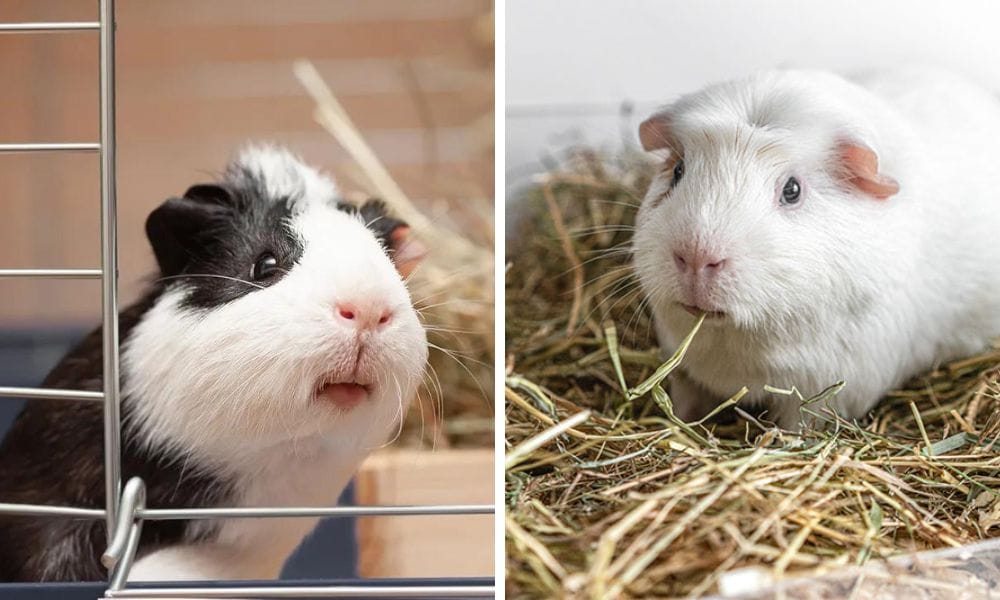
Types of Hay for Guinea Pigs
When it comes to guinea pig hay, there are several types to choose from. Timothy hay is a popular choice due to its optimal fiber to fat content and low calcium, which is ideal for adult guinea pigs. Alfalfa hay, on the other hand, is a legume hay with more nutrients and a higher fat content, suitable for young, pregnant, or nursing guinea pigs due to its higher calcium and protein levels.
Hay Quality and Storage
The freshest hay is the best for your guinea pigs. Look for hay that is green, smells fresh, and is free from mold and excessive hay dust, which can cause respiratory issues like a runny nose. Store your hay in a cool, dry place to maintain its nutritional value and prevent spoilage.
Hay Alternatives and Additions
While hay should be the bulk of their diet, guinea pigs also enjoy a variety of other foods. Orchard grass hay, oat hay, and botanical hay are excellent alternatives that provide variety and additional nutrients. However, these should complement, not replace, the main hay in their diet.
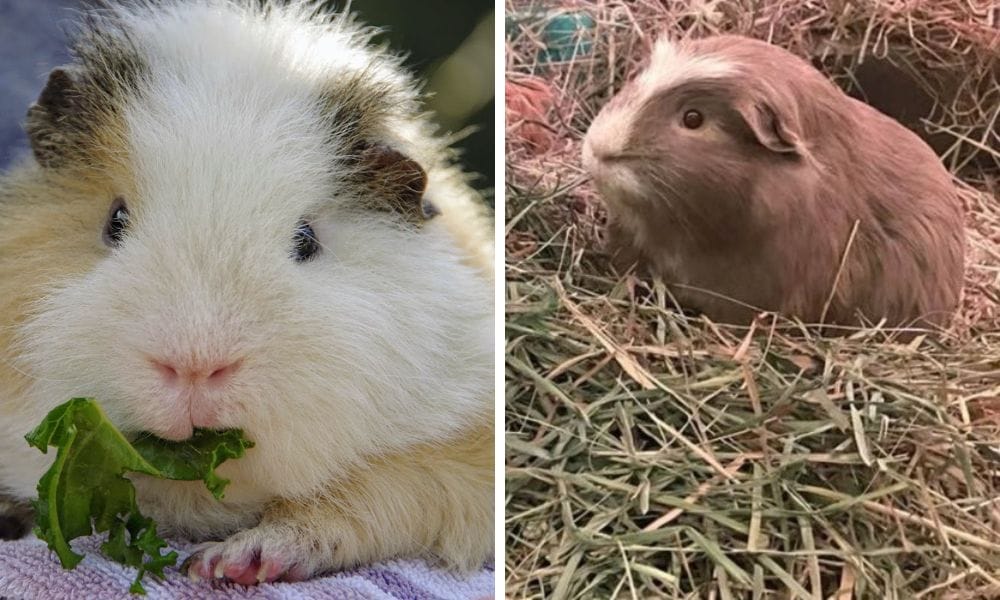
Balancing Hay with Fresh Foods
Fresh foods are a necessary addition to a guinea pig's diet, providing essential vitamin C and other nutrients that hay alone cannot offer. Vegetables like bell peppers, leafy greens, and small amounts of fruits should be included daily for a balanced diet.
The Importance of Fresh Water
Alongside hay and food, clean water is the most important thing to provide for your guinea pig. Fresh water should be available at all times, as it aids in digestion and overall health. Check and refill your guinea pig's water bottle daily to ensure they stay hydrated.
Monitoring Your Guinea Pig's Health
A balanced diet is key to a healthy guinea pig. Monitor your pet's weight, as losing weight can be a sign of an imbalanced diet or health issues. Regular check-ups with a vet can help catch any problems early on.
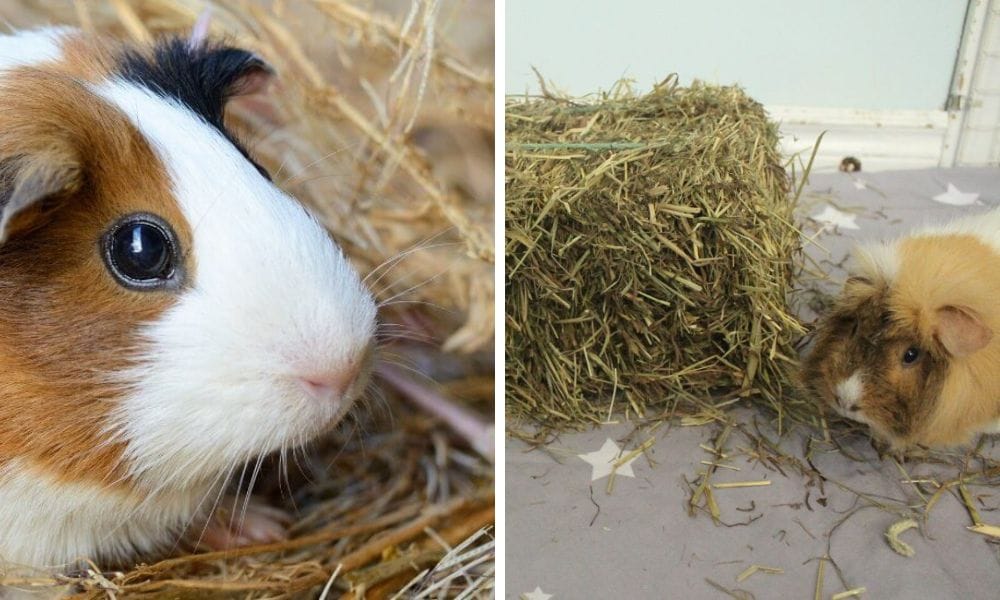
Understanding Hay Allergies
Some guinea pigs, as well as their human companions, may develop hay allergies. Symptoms include sneezing, a runny nose, or difficulty breathing. If you suspect hay allergies, consult with a vet for alternatives and management strategies.
The Right Phosphorus to Calcium Ratio
The balance of phosphorus to calcium in a guinea pig's diet is crucial to prevent bladder stones. Timothy hay and other grass hays have a low calcium to phosphorus ratio, making them ideal for maintaining this balance.
The Nutritional Value of Different Hays
Each type of hay offers different nutritional benefits. For example, orchard hay is a good quality hay with a soft texture that many pets enjoy, while oat hay provides more variety in texture and taste. Mixing different types of hay can keep your guinea pig interested in eating.
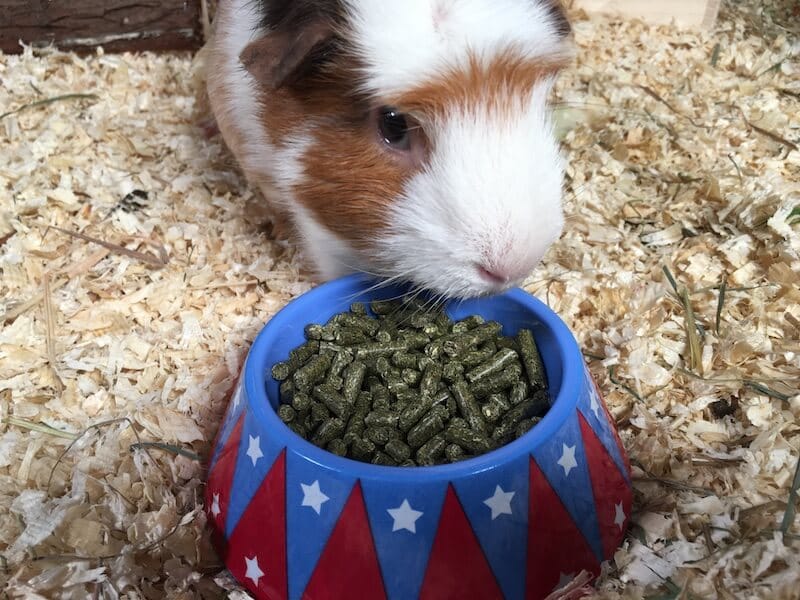
Seasonal Variations in a Guinea Pig's Diet
When it comes to a guinea pig's diet, seasonal changes can play a significant role in their well-being. During spring and summer, fresh hay is abundant, and the variety of available fresh foods can provide excellent alternatives to the usual fare. Piggies can enjoy a range of leafy greens and herbs that are not only a delight to their taste buds but also beneficial for their health. It's important to gradually introduce these seasonal treats to avoid digestive issues, ensuring that the bulk of their diet remains high-quality guinea pigs hay.
As the seasons turn to autumn and winter, the availability of fresh forage diminishes, and guinea pig owners must rely more on bagged hay and store-bought vegetables. This is the time to ensure that your guinea pig's hay is stored properly to maintain its nutritional value. Additionally, vitamin C supplements become even more crucial as fresh sources may be limited. Keeping a close eye on your guinea pig's teeth during these months is also essential, as the lack of fresh forage can lead to less natural grinding and potential dental problems.
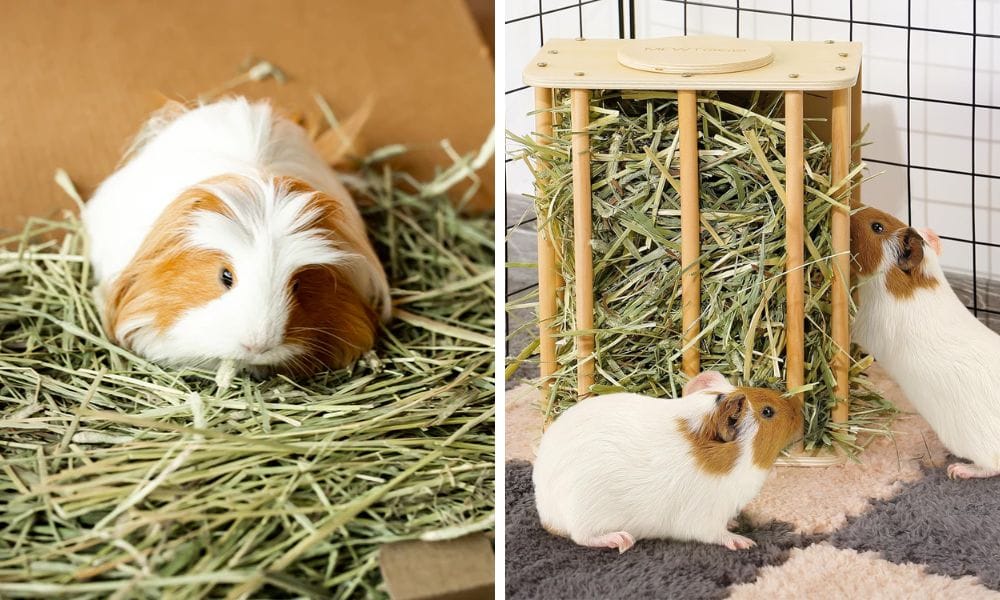
The Influence of Hay Variety on Guinea Pig's Well-being
When it comes to the well-being of your furry friend, the variety of guinea pig's hay you offer can make a significant difference. Different types of hay provide not only a range of flavors that guinea pigs enjoy but also various nutritional benefits. For instance, Timothy hay is a popular choice that's high in fiber and low in protein, which is ideal for an adult guinea pig's digestive system. On the other hand, alfalfa hay, which is richer in protein and calcium, is better suited for young, pregnant, or nursing guinea pigs. Offering a mix ensures that your pet is not only satisfied with its meals but also receives a well-rounded diet.
Moreover, the texture of the hay can influence a guinea pig's teeth health. Chewing on hay helps in the natural wear down of their constantly growing teeth, preventing dental issues. If a guinea pig eats hay that is too soft, it might not provide enough resistance to keep their teeth in check. Conversely, hay that is too tough might discourage them from eating altogether. Finding the right balance in hay texture is crucial for maintaining your guinea pig's dental health and overall well-being.
The Significance of a Properly Sized Hay Bag for Guinea Pigs
A properly sized hay bag is more than just a container; it's a critical component in managing your guinea pig's diet and environment. A bag that's too small might not hold enough hay to last throughout the day, leading to periods where your guinea pig has nothing to eat. This can cause stress and may lead to gastrointestinal issues due to irregular eating patterns. On the flip side, a bag that's too large could encourage waste, as guinea pigs might soil the hay by trampling on it or using it as bedding, making it unappealing or unsafe to eat.
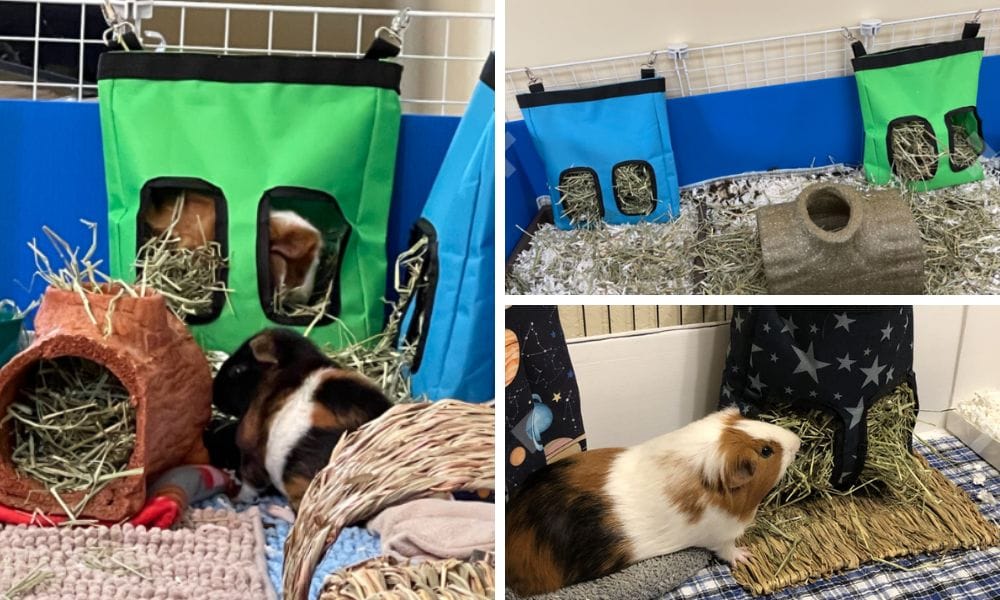
Furthermore, the design of the hay bag can affect your guinea pig's health and cleanliness. A well-designed hay feeder will minimize hay spillage and keep the eating area tidy, reducing the risk of mold and bacteria growth that could harm your guinea pig's health. It also encourages your pet to forage and eat in a way that's natural to them, promoting physical activity and mental stimulation. Always ensure the hay bag is clean, easily accessible, and filled with fresh hay to support the health and happiness of your guinea pigs.
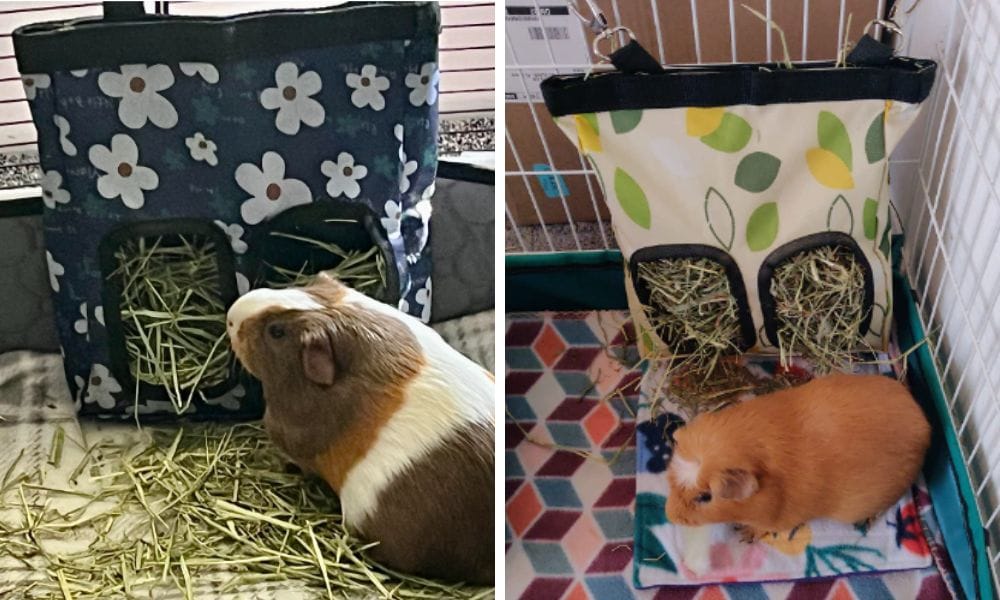
The Comparison with Other Small Pets
Guinea pigs, chinchillas, and rabbits share some dietary commonalities, but it's important to recognize the unique needs of each. While all three animals require a diet rich in hay, the type of hay best suited for each can differ. For instance, while guinea pigs hay is often timothy-based, some owners find that a blend of grasses is an excellent alternative for chinchillas and rabbits, providing a variety of textures and flavors. This diversity can encourage more foraging behavior and contribute to dental health by promoting the natural wear of their teeth.
However, unlike rabbits and chinchillas, guinea pigs cannot synthesize their own vitamin C and must obtain it from their diet. This makes the selection of guinea pig s diet items particularly crucial. While all three pets benefit from the fiber in fresh hay, guinea pigs especially need a constant supply to prevent gastrointestinal stasis and to maintain their overall health. When considering treats and supplements, it's essential to tailor these to the specific needs of your pet, whether they're piggies, bunnies, or chinchillas, to ensure their optimal health and well-being.
How Much Hay Should a Guinea Pig Eat?
Guinea pigs should have unlimited access to hay. It should make up about 80% of their diet, with the rest being fresh vegetables and a small amount of pellets. A hay rack can be a useful tool to keep the hay clean and accessible.
The Role of Pellets in a Guinea Pig's Diet
While hay is the cornerstone of a guinea pig's diet, pellets can provide additional nutrients. Choose pellets with a high fiber content and without added sugars or seeds. Feed only small amounts as a supplement to hay and fresh foods.
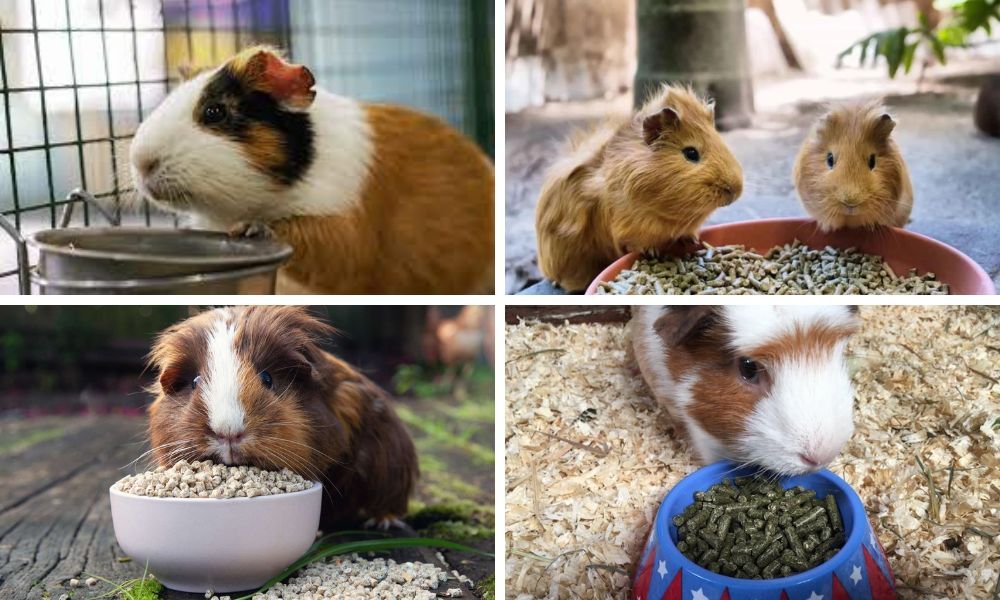
Signs of an Unbalanced Diet
If a guinea pig is not eating, has a change in stool consistency, or is showing signs of discomfort, these may be signs of an unbalanced diet or health issues. Immediate veterinary attention is necessary to address these concerns.
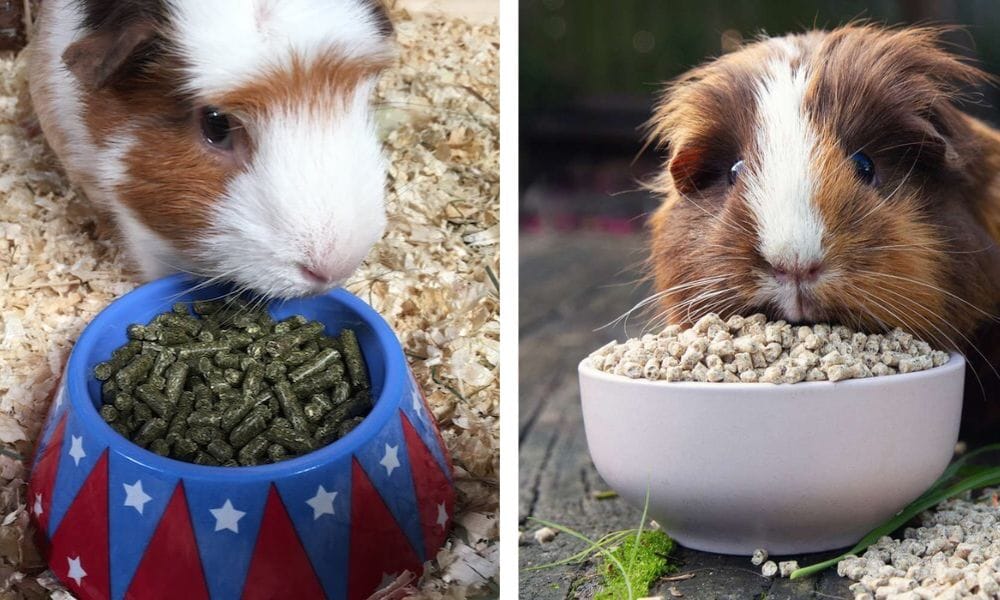
The Impact of Diet on Guinea Pig's Teeth
Guinea pig's teeth grow continuously, and chewing hay helps wear them down naturally. A lack of hay can lead to overgrown teeth, causing pain and difficulty eating. Ensure your guinea pig always has plenty of hay to chew on.
Creating a Foraging Environment
Guinea pigs are natural foragers. Scatter hay and other foods around their cage to encourage natural behaviors and provide mental stimulation. This mimics their natural environment and keeps them active.

The Difference Between Bedding and Hay
While some bedding materials may look similar to hay, they are not interchangeable. Bedding is for comfort and hygiene in the cage, while hay is for eating. Ensure your guinea pig has a clear distinction between the two.
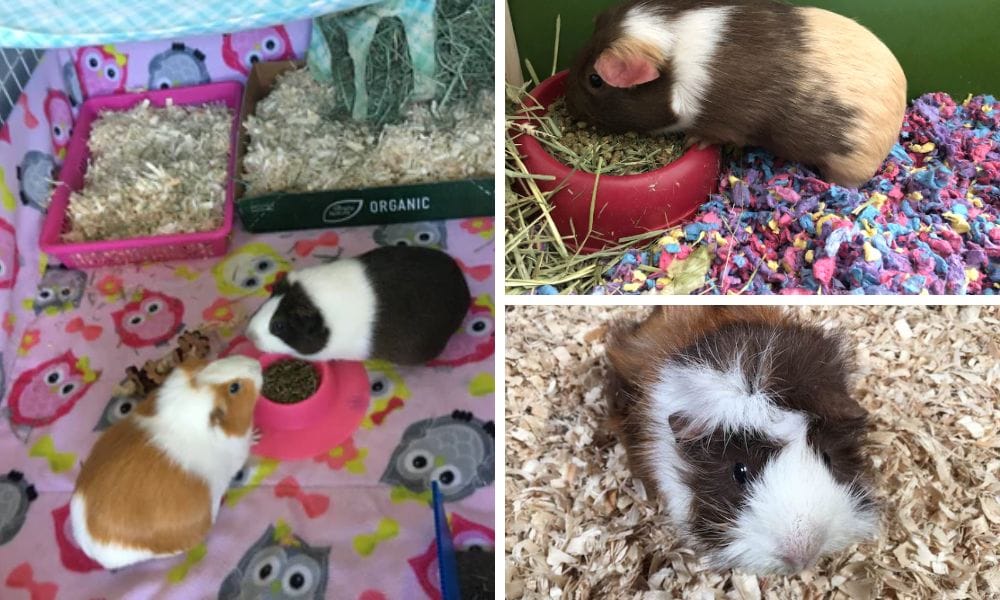
The Role of Vitamin C
Guinea pigs cannot produce their own vitamin C, so it must be a part of their diet. Fresh vegetables and fruits, along with high-quality pellets fortified with vitamin C, can help meet their daily requirements.
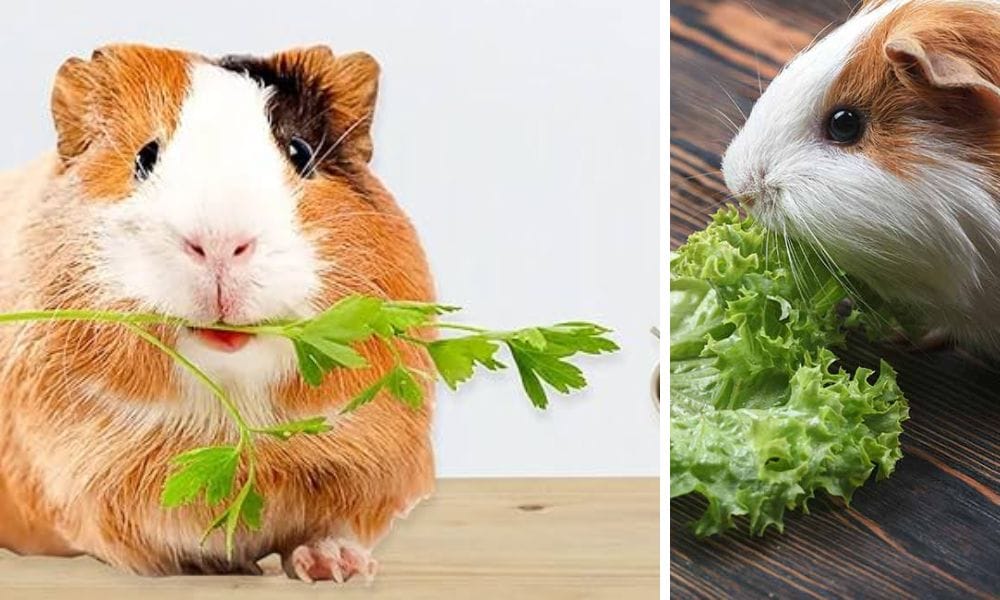
Transitioning to New Foods
When introducing new foods to your guinea pig's diet, do so gradually to avoid digestive upset. Mix new hay or foods with the old ones and slowly increase the proportion over time.
The Importance of Cleanliness
Keeping your guinea pig's eating area clean is vital to prevent the growth of bacteria and mold. Regularly clean the hay rack and feeding areas to ensure your guinea pig is eating in a healthy environment.
The Social Aspect of Eating
Guinea pigs are social animals and often enjoy eating together. If you have more than one guinea pig, provide enough food and space for all to eat comfortably to prevent competition and stress.
Summary
A guinea pig's diet is a delicate balance between hay, fresh foods, and clean water. Hay is the cornerstone, providing the necessary fiber for digestive health and the roughage for dental care. Fresh foods supplement the diet with essential vitamins and minerals, while clean water supports overall health. By understanding the types of hay and the balance of nutrients required, you can ensure your guinea pig lives a happy and healthy life.
FAQ Section
Q: How much hay should a guinea pig have each day? A: Guinea pigs should have unlimited access to hay, as it should constitute about 80% of their diet.
Q: Can guinea pigs have too much fresh food? A: Yes, fresh foods should be given in moderation to prevent digestive issues. They should complement, not replace, the hay in a guinea pig's diet.
Q: What should I do if my guinea pig stops eating hay? A: If your guinea pig stops eating hay, it's important to consult a veterinarian as it could be a sign of dental or health issues.
A balanced diet is key when it comes to keeping your guinea pig healthy and happy! By properly incorporating hay into their daily meals while providing nutritious veggies, fruits, pellets and occasional treats you can ensure that all their nutritional needs are met without overfeeding them or giving unhealthy ingredients that could cause harm in the long run. If you want to find out more about nutrition needs for your Guinea Pig, we have a blog about this topic here.
Finding the perfect balance between hay and other foods in a guinea pig's diet can be tricky but with some research it is possible to get it just right! By following these tips you'll ensure that your pet gets all the essential nutrients needed for a healthy life while also having enough variety in their meals to keep them entertained all day long. With proper feeding habits like these you'll have happy and healthy guinea pigs running around your home!
Looking for high quality hay for your guinea pig? We have done all the research for you and put together our list of top 5 high quality hays for guinea pigs you can buy today! Tap the button below to see the list now!

